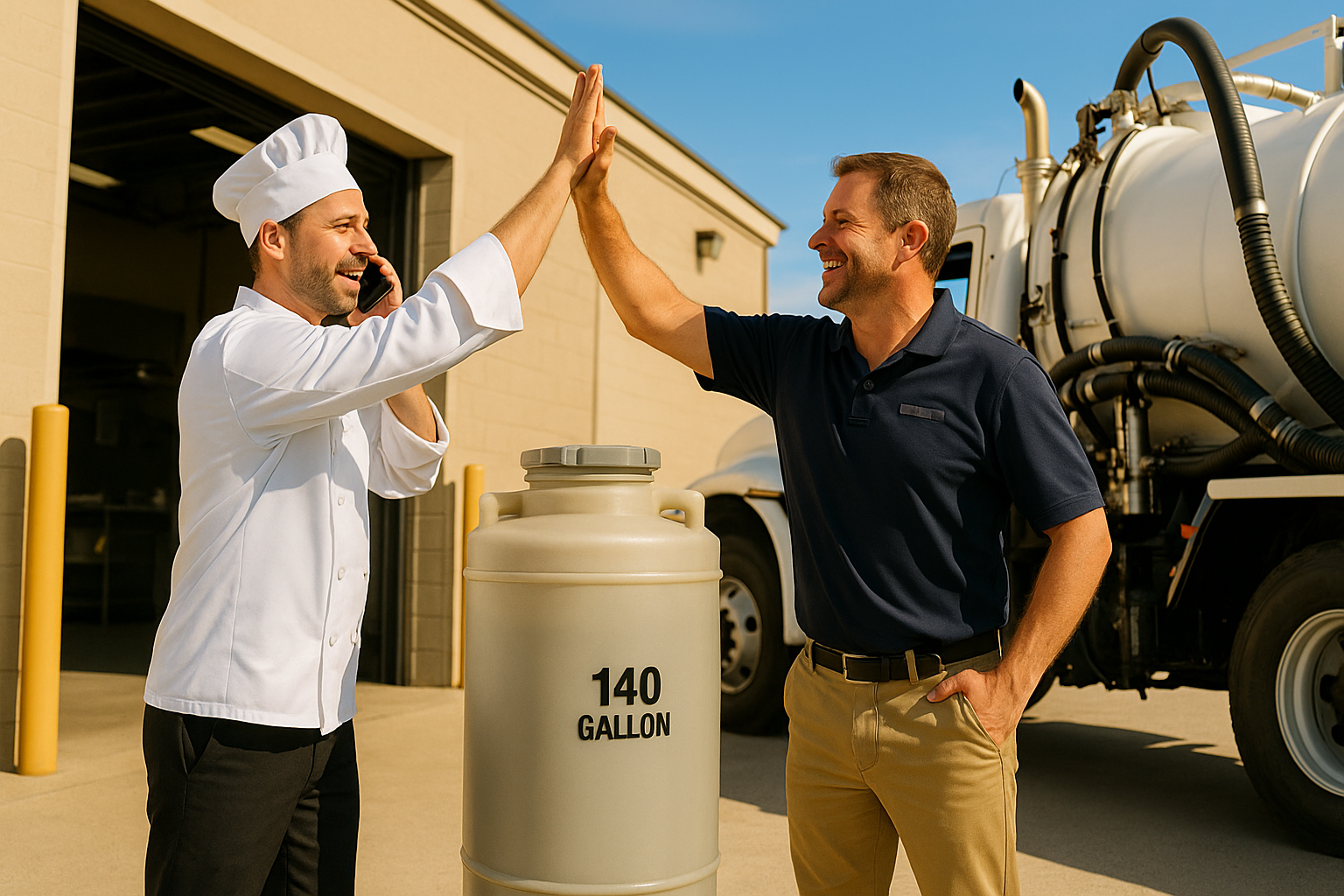Table of Contents
The Grease Cycle in New Jersey Food Service
Every fryer load eventually turns to waste oil, and in New Jersey that liquid is legally a “regulated recyclable.” When it leaves your kitchen, it enters a statewide supply chain that converts fats into ASTM compliant biodiesel. Regular pickups keep you in step with this cycle. They stop rancid odors, free kitchen space, and maintain fryer performance. Most haulers operate on set routes, so when you book routine service you’re reserving secure tank space on that truck, not just a one off visit. Understanding this logistics rhythm is the first step toward a zero hassle program that protects your staff, your plumbing, and the wetlands downriver.
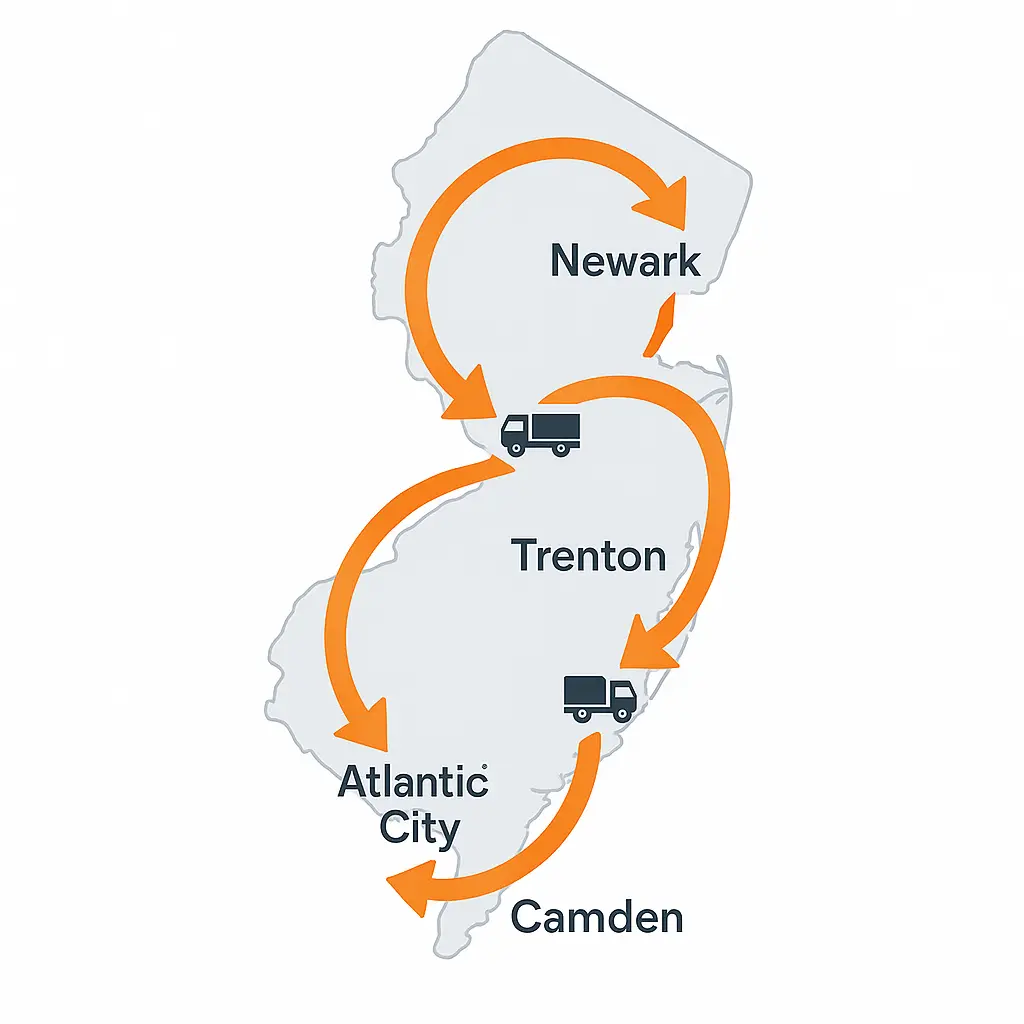
Why “Set It and Forget It” Scheduling Beats Call In Service
Unplanned call ins feel flexible but often cost more. Haulers must divert trucks, adding fuel surcharges and delaying stops for other kitchens. Scheduled service, by contrast, locks in a predictable day, a fixed price, and volume based rebates. Fryers are never overfilled, employees avoid late night drum swaps, and inspectors see time stamped pickup receipts in your logbook, a requirement under NJ AC 7:26A. In practice, kitchens on standing routes report 32 percent fewer grease trap blockages because oil never lingers long enough to harden. That reliability also protects your insurance rating: fewer spills, fewer worker comp claims.
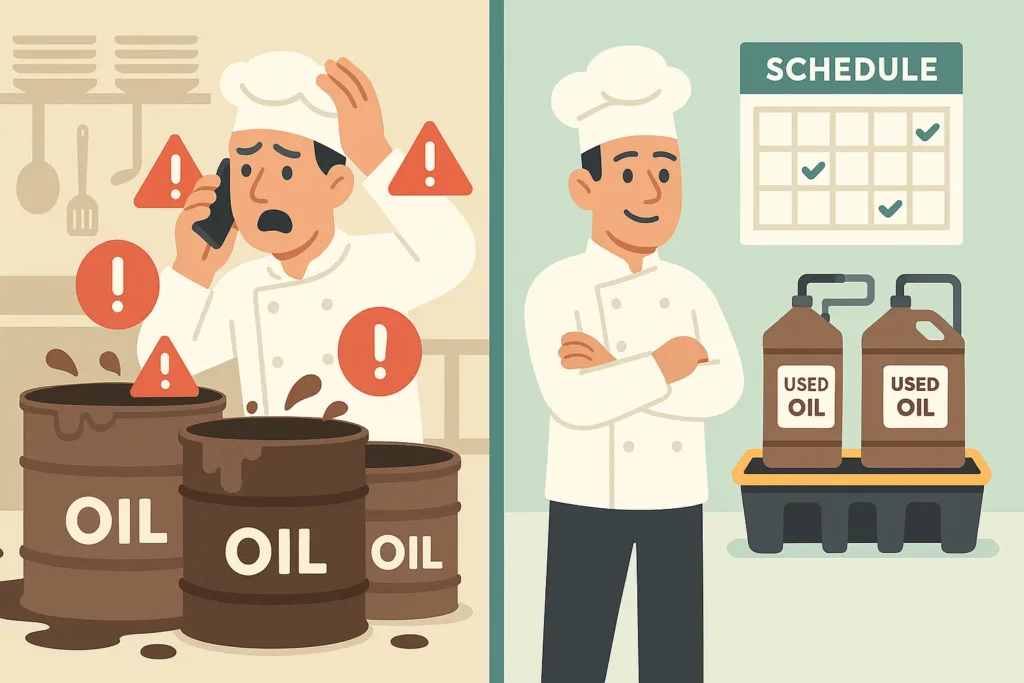
New Jersey Regulations You Must Meet
The New Jersey Department of Environmental Protection classifies used cooking oil as a Class D recyclable. Generators must (1) store oil in closed, clearly labeled containers, (2) keep a twelve month manifest record, and (3) use licensed “Solid Waste Transporter A 901” carriers. Fines start at $1,000 per violation, and local health departments can order same day corrective action. A good hauler automates compliance by emailing EPA compatible manifests after every stop and maintaining backup logs in the cloud. Ask whether their truck scales are NTEP certified; accurate weight tickets are your proof that nothing went down the storm drain.
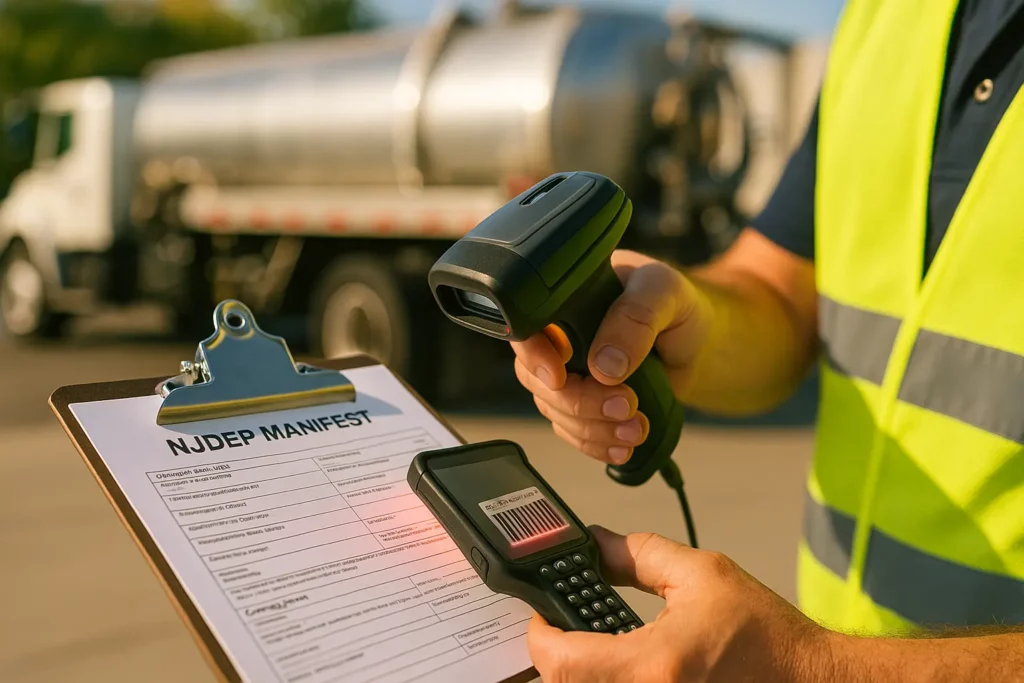
Pick the Container That Fits Your Volume
| Container size & style | Ideal daily fryer output |
|---|---|
| 55 gallon black drum | Up to 1 gal/day (food trucks, cafés) |
| 70 gallon wheeled caddy | 1 to 2 gal/day (quick service) |
| 140 gallon lidded tank | 3 to 5 gal/day (full service restaurants) |
| 300 gallon tank + pump cart | 6 gal/day or more (multi unit hotels) |
A right sized tank eliminates mid week overflows and lets the hauler empty in under five minutes. Tanks should sit on a level pad outdoors or in a ventilated corral, at least three feet from dumpsters to deter pests. If your volume fluctuates seasonally, choose a modular system; swapping a 140 gallon for two 70 gallon caddies keeps your footprint the same while doubling capacity during summer tourist peaks.
*Numerals show verified average volumes from regional hauler weight tickets.
Deciding Your Pickup Frequency
Most New Jersey kitchens schedule every 7, 14, or 28 days. The sweet spot is filling your tank to 70 percent: enough weight for efficient truck routing without overflow risk. An operator producing 3 gallons daily will reach that threshold in roughly three weeks in a 70 gallon caddy. Software driven haulers track fill levels with ultrasonic sensors, adjusting schedules automatically after big catering events. Ask whether your provider offers sensor dashboards; they not only prevent missed pickups but also help forecast fryer oil purchasing.
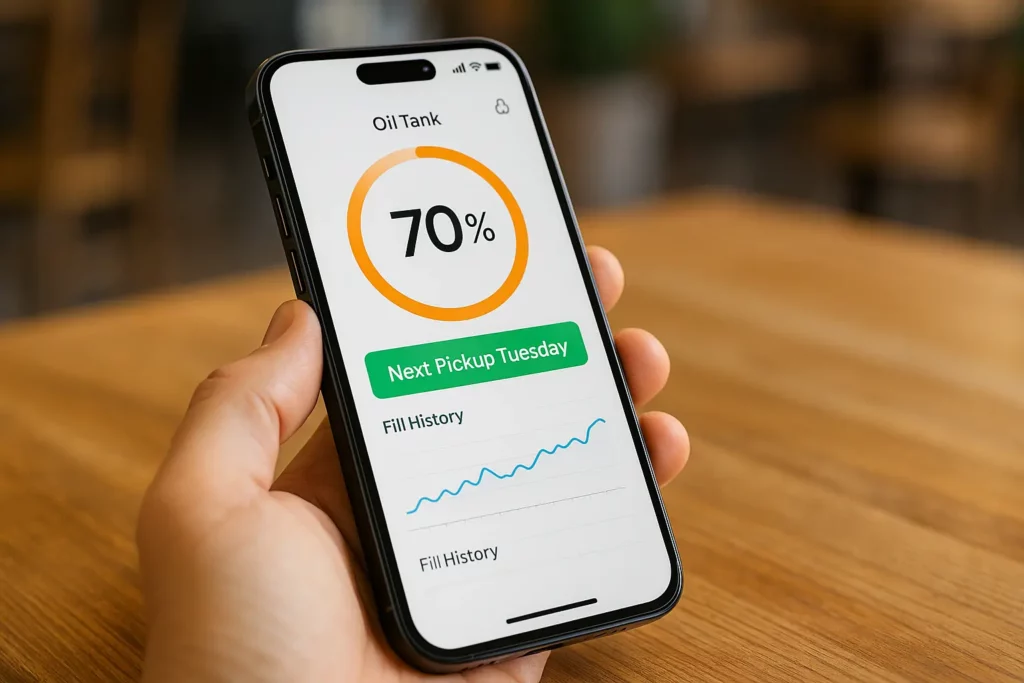
How to Choose a Licensed Grease Recycler
Price matters, yet the cheapest bid often hides service gaps. Verify the carrier’s A 901 license, insurance certificate, and biodiesel off take agreement. Look for operators who (1) issue EPA ready digital manifests, (2) provide 24/7 spill response, and (3) offer equipment maintenance. Reputable firms share annual “green reports” showing how many pounds of carbon your oil offset, a data point reporters love when covering sustainable restaurants. Finally, read Google and Yelp reviews for missed pickup complaints; even one skip per quarter can shut a busy kitchen down for hours.
Step by Step: Booking Your First Pickup
- Fill out the online service form with kitchen address, average daily volume, and preferred container.
- A route planner emails your draft schedule within 24 hours.
- Sign the e contract; equipment arrives on the next truck run, usually three business days.
- Install the tank with the driver’s help, run a quick safety briefing, and sign the first manifest.
- From then on, trucks empty on the agreed cadence, and receipts land instantly in your inbox.
Behind the scenes, route software slots you into an efficient loop covering Newark, Edison, and Asbury Park, minimizing mileage and passing the savings back as higher rebate cents per pound.
Statewide Coverage: Is Your Town Included?
Licensed recyclers cover every county, from Sussex down to Cape May, but some require a two stop minimum in rural zip codes. If you operate in places like Hammonton or Phillipsburg, ask about “milk run” partnerships, where nearby diners share one pickup window. Urban centers like Jersey City, Newark, and Elizabeth enjoy daily routes. Use the hauler’s interactive map to see your exact service day; color coding shows which container sizes are stocked in each depot so you never wait for spares.
What Happens on Pickup Day
Drivers use vacuum hoses with sealed quick connects; no lids are lifted by hand, which prevents splashes and theft. The truck’s onboard meter weighs oil to the nearest pound, prints the ticket, and sanitizes hose tips before leaving. Kitchens report the process takes under seven minutes, shorter than a produce delivery. Because oil leaves in closed loops, there is zero odor and no attraction for raccoons, an overlooked health grade benefit. If the sensor reading differs from the truck scale by more than five percent, the system flags a leak inspection at no extra charge.
Frequently Asked Questions
Is the service really free? Yes. Haulers earn revenue by selling your oil to biodiesel plants, so pickup, equipment, and manifesting cost you nothing.
Can I lock in a rebate rate? Contracts typically fix cents per pound for twelve months, shielding you from commodity swings.
What if my fryer output spikes on holidays? Call before noon and most carriers add a same day stop for existing customers, at no fee, thanks to spare tank space on urban routes.
Ready to Schedule?
Reliable oil pickup is a phone call away. If you manage a kitchen anywhere in New Jersey, click “Get My Pickup,” choose your tank, and let us handle the rest. Your fryers stay hot, your drains stay clear, and your sustainability scorecard fills itself. Schedule today and cook with a cleaner conscience tomorrow.

